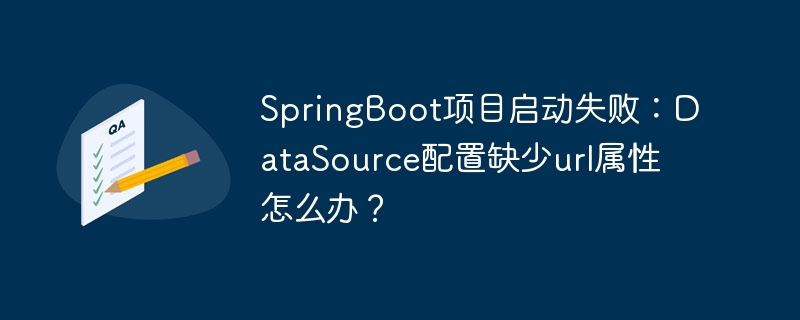
本文旨在帮助go语言开发者理解并实现Session管理。我们将介绍几种常用的go语言Session管理库,包括Gorilla Sessions、seshCookie和authcookie,并重点讲解Gorilla Sessions的使用方法,帮助开发者快速上手,构建安全可靠的Web应用。
Session管理是Web应用开发中不可或缺的一部分,用于在用户与服务器之间维护状态。与python/Django等框架相比,Go语言的标准库并没有内置Session管理功能,需要借助第三方库来实现。本文将介绍几种常用的Go语言Session管理库,并着重讲解Gorilla Sessions的使用方法。
常用Session管理库
Go语言生态系统中,有多种Session管理库可供选择,以下列出几个比较流行的:
- Gorilla Sessions: 这是最常用的Session管理库之一,提供了灵活的Session存储机制,支持多种后端存储,如Cookie、Filesystem、memcache、redis等。
- seshcookie: 一个轻量级的Session库,主要通过Cookie来存储Session数据,适合对性能要求较高的场景。
- authcookie: 专注于安全Cookie管理的库,提供了加密和签名功能,可以有效防止Cookie被篡改。
Gorilla Sessions使用详解
Gorilla Sessions是功能最完善、使用最广泛的Session管理库。它提供了强大的Session管理功能,并且支持多种存储后端。
立即学习“go语言免费学习笔记(深入)”;
1. 安装Gorilla Sessions:
使用go get命令安装:
go get github.com/gorilla/sessions go get github.com/gorilla/securecookie
2. 基本用法:
以下是一个使用Gorilla Sessions的简单示例:
package main import ( "fmt" "log" "net/http" "github.com/gorilla/sessions" ) var ( // Session存储使用的密钥,请务必修改为随机字符串 key = []byte("super-secret-key") store = sessions.NewCookieStore(key) ) func homeHandler(w http.ResponseWriter, r *http.Request) { session, _ := store.Get(r, "session-name") // 获取Session中的计数器值,如果不存在则初始化为0 count := session.Values["count"] if count == nil { count = 0 } // 递增计数器 session.Values["count"] = count.(int) + 1 err := session.Save(r, w) if err != nil { http.Error(w, err.Error(), http.StatusInternalServerError) return } fmt.Fprintf(w, "Count: %d", session.Values["count"]) } func main() { http.HandleFunc("/", homeHandler) log.Println("Server started on :8080") log.Fatal(http.ListenAndServe(":8080", nil)) }
代码解释:
- key: 用于加密Session数据的密钥,必须修改为一个随机的、安全的字符串。
- store: 创建一个Cookie存储,用于存储Session数据到Cookie中。
- store.Get(r, “session-name”): 从请求中获取名为”session-name”的Session。如果Session不存在,则创建一个新的Session。
- session.Values: 一个map[Interface{}]interface{},用于存储Session数据。
- session.Save(r, w): 将Session数据保存到响应中。
3. 使用不同的存储后端:
除了Cookie存储,Gorilla Sessions还支持多种存储后端,例如Filesystem、Memcache、redis等。使用不同的存储后端需要导入相应的库,并修改store的初始化方式。
示例:使用Redis存储Session:
首先,安装Redis存储库:
go get github.com/gomodule/redigo/redis go get github.com/gorilla/sessions/v3/redis
然后,修改代码:
import ( "fmt" "log" "net/http" "github.com/gomodule/redigo/redis" "github.com/gorilla/sessions" redistore "github.com/gorilla/sessions/v3/redis" ) var ( // Session存储使用的密钥,请务必修改为随机字符串 key = []byte("super-secret-key") store *redistore.RedisStore ) func init() { // 初始化Redis存储 var err error store, err = redistore.NewRediStore(10, "tcp", ":6379", "", key) if err != nil { panic(err) } } func homeHandler(w http.ResponseWriter, r *http.Request) { session, _ := store.Get(r, "session-name") // 获取Session中的计数器值,如果不存在则初始化为0 count := session.Values["count"] if count == nil { count = 0 } // 递增计数器 session.Values["count"] = count.(int) + 1 err := session.Save(r, w) if err != nil { http.Error(w, err.Error(), http.StatusInternalServerError) return } fmt.Fprintf(w, "Count: %d", session.Values["count"]) } func main() { http.HandleFunc("/", homeHandler) log.Println("Server started on :8080") log.Fatal(http.ListenAndServe(":8080", nil)) }
注意事项:
- 密钥安全: 务必使用安全的、随机生成的密钥来加密Session数据。不要将密钥硬编码到代码中,建议使用环境变量或配置文件来管理密钥。
- Session过期时间: 设置合理的Session过期时间,避免Session长期占用资源。
- 存储后端选择: 根据实际需求选择合适的存储后端。Cookie存储适合存储少量数据,而Redis等存储后端适合存储大量数据。
- 安全: 对于敏感数据,建议进行加密存储。
总结
本文介绍了Go语言中Session管理的基本概念和常用库,并详细讲解了Gorilla Sessions的使用方法。通过学习本文,开发者可以快速上手,在Go语言Web应用中实现Session管理,构建安全可靠的Web应用。选择合适的Session管理库和存储后端,并注意安全问题,是开发高质量Web应用的关键。

















